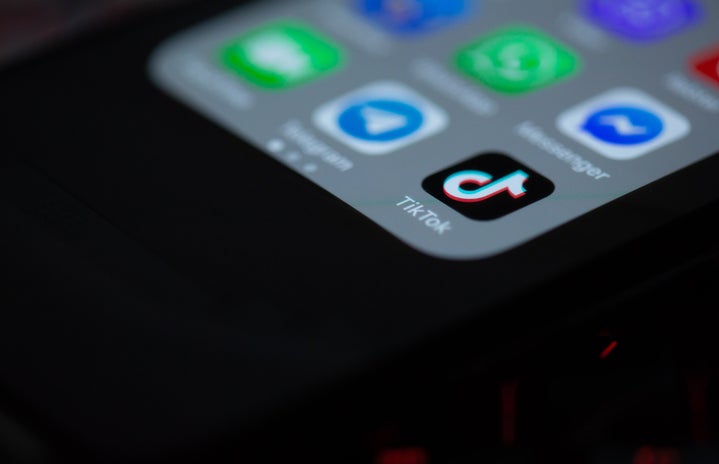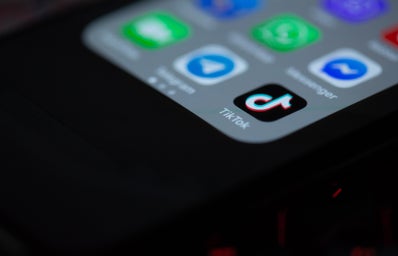As a nation, but more specifically a generation, we are chronically online. For many, their livelihoods, careers, friends, and interests all lay at the end of an internet connection. As a 19 year old with access to a smartphone, I have spent my teen years immersed and addicted to a culture of social media and the buzz surrounding the internet. I can remember the gradual childhood shift from Barbie, to Nintendo DS (which embarrassingly, I still own) to iPhone. Globalisation, innovative technology and algorithms have ensured a constant awareness of the events and people around us. With an era of servitude to the smartphone, social media platforms have taken the world by storm and completely transformed how we live our lives.
a Gen-Z Phenomenon
What Facebook was to millennials is what TikTok is to Gen-Z. With over one billion users, its specifically tailored algorithm and sheer ability to provide you with personalised content for hours on end sets TikTok apart from the rest – not forgetting its ability to churn out ‘content creators’ on 7 figure salaries. News channels, teachers and parents are all TikTok users – being a part of the interconnected hive buzzing around TikTok is inescapable and unavoidable. That is, until you delete it from your phone.
Tik tok.. tik tok…
In all honesty my intention behind deleting TikTok was originally to use my time more wisely. Like many of us out there, I am inundated with module readings, essays, applications and commitments. I am a driven person, with ambitious goals for the future and I love spending time with my friends, boyfriend and calling my mum. Yet I have given all of this up to spend hours feeding a TikTok addiction. The algorithm’s ability to perfectly tailor videos that make you laugh and cry make it a personal viewing experience, one to which it is hard to say no. It has definitely taken a toll on my university work. My attention span has been torn to shreds, with tutorial readings like mountains to climb, never mind reading for pleasure like I did in secondary school.
Dopamine dependency
In short, the personalised algorithm is designed to keep you hooked. In the past Forbes has called TikTok, “digital crack cocaine for your brain” of constant dopamine hits strong enough to keep you enthralled for hours. We know it all too well – you open TikTok for 10 minutes to take a study break, one scroll leads to another and soon enough it is dark outside and it’s 8pm. TikTok isn’t alone in its ability to warp time, Instagram and Facebook share the ability to distract you for prolonged periods of time. However, while the familiar novelty of viewing other people’s photos on the latter two generally wears off, the personalised algorithm, speedy viewing time of TikTok – the average video being only 18 seconds – and no need for a following, allows for a never ending loop of entertainment. We literally can not get enough – and so I have found myself opting to stay in rather than to socialise or work just for a TikTok fix of brain numbing.
Strange comparisons
Do I love being online, or am I simply addicted? Private stories are entertaining and I like posting on Instagram, but at times I find social media to be inauthentic. The performative need to be viewed as fun and busy can be exhausting, so scrolling on TikTok can be a way to switch off from the pressure of maintaining appearances on other platforms. However, I have found myself caught in the ostentatious loop of young women my age posting their lives, content the algorithm will not liberate me from. We binge on the lives of strangers. Every two scrolls I am met with a pretty girl with clear skin and perfect hair and I am left comparing myself to someone that I will never meet, but more painfully, isn’t me. This dopamine fix that I was reliant on was creating adverse effects of dissatisfaction and jealousy.
An unreliable source?
While TikTok may have stolen my attention span and a smidgen of my self-esteem, its unreliability as a source of information for young people, including myself, is the real reason why I let it go. Like Twitter, TikTok is a source of information and opinion. There is no need to read online journals or even the news, TikTok presents us with news. The way we absorb information is disposable. We are taken in by headlines and 10 second clips, with nothing else to go on. With frazzled attention spans and an inability to hunt for true knowledge, we are turning into a generation that lacks the ability to put time and effort into our understanding of the world, our relationships and our careers. While I expect myself to redownload TikTok at some point, by getting rid of it now, I hope to rediscover my love of reading long texts and to indulge in the things that will help my future.

